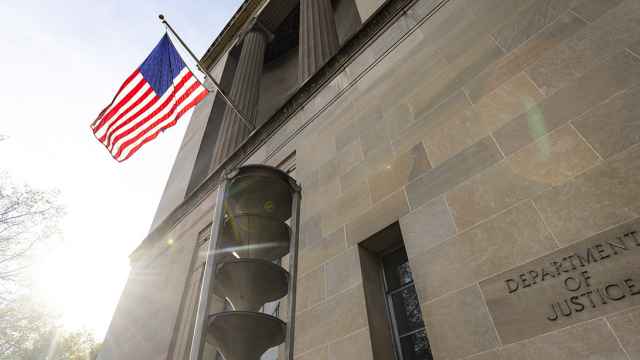For several years, U.S. officials have pressed China to revalue its currency. They complain that the undervalued yuan represents unfair competition, destroys U.S. jobs and contributes to the U.S. trade deficit. How, then, should Washington respond?
Just before the recent Group of 20 meeting in Toronto, China announced a formula that would allow modest yuan appreciation, but some U.S. congressmen remain unconvinced and threaten to increase tariffs on Chinese goods.
The United States absorbs Chinese imports and pays China in dollars, and China has amassed $2.5 trillion in foreign-exchange reserves, much of it held in U.S. Treasury securities. To some observers, this represents a fundamental shift in the global balance of power, because China could cause terrible damage by threatening to sell its dollars.
But if China were to bring the United States to its knees, it might bring itself to its ankles in the process. China would not only reduce the value of its reserves as the dollar’s value fell, but it would also jeopardize U.S. desire to import cheap Chinese goods, leading to job losses and instability in China.
Judging whether economic interdependence produces power requires looking at the balance of asymmetries, not just at one side of the equation. In this case, interdependence has created a “balance of financial terror” analogous to the Cold War, when the United States and the Soviet Union never used their potential to destroy each other in a nuclear exchange.
In February, angered over U.S. arms sales to Taiwan, a group of senior military officers called for the Chinese government to sell off U.S. government bonds in retaliation. Their proposal went unheeded. Instead, Yi Gang, China’s director of state administration of foreign exchange, explained that “Chinese investments in U.S. Treasuries are market investment behavior, and we don’t wish to politicize them.” Otherwise, the pain would be mutual.
Nevertheless, this balance does not guarantee stability. There is always the danger of actions with unintended consequences, especially as both countries can be expected to maneuver to change the framework and reduce their vulnerabilities. For example, after the 2008 financial crisis, while Washington pressed Beijing to let its currency appreciate, officials at China’s central bank began arguing that the United States needed to increase its savings, reduce its deficits and move toward supplementing the dollar’s role as a reserve currency with International Monetary Fund-issued special drawing rights.
But China’s bark was louder than its bite. China’s increased financial power may have increased its ability to resist U.S. entreaties. But despite dire predictions, its creditor role has not been sufficient to compel the United States to change its policies.
While China has taken minor measures to slow the increase in its dollar-denominated holdings, it has been unwilling to risk a fully convertible currency for domestic political reasons. Thus, the yuan is unlikely to challenge the dollar’s role as the largest component of world reserves — more than 60 percent — in the next decade.
Yet as China gradually increases domestic consumption rather than relying on exports as its engine of economic growth, its leaders may begin to feel less dependent than they now are on access to the U.S. market as a source of job creation, which is crucial for internal political stability. In that case, maintaining a weak yuan would protect the trade balance from a flood of imports.
Asymmetries in currency markets are an important aspect of economic power since they underlie global trade and financial markets. By limiting the convertibility of its currency, China is avoiding currency markets’ ability to discipline domestic economic decisions.
The Group of 20 is focusing on the need to “rebalance” financial flows, altering the old pattern of U.S. deficits matching Chinese surpluses. This would require politically difficult shifts in consumption and investment with the United States increasing its savings and China increasing consumption.
Such changes do not occur quickly. Neither side is in a hurry to break the symmetry of interdependent vulnerability, but both continue to jockey to shape the structure and institutional framework of their market relationship. For the sake of the global economy, let us hope that neither side miscalculates.
Joseph S. Nye is a professor at Harvard University and author of the forthcoming book “Power in the 21st Century.” © Project Syndicate
A Message from The Moscow Times:
Dear readers,
We are facing unprecedented challenges. Russia's Prosecutor General's Office has designated The Moscow Times as an "undesirable" organization, criminalizing our work and putting our staff at risk of prosecution. This follows our earlier unjust labeling as a "foreign agent."
These actions are direct attempts to silence independent journalism in Russia. The authorities claim our work "discredits the decisions of the Russian leadership." We see things differently: we strive to provide accurate, unbiased reporting on Russia.
We, the journalists of The Moscow Times, refuse to be silenced. But to continue our work, we need your help.
Your support, no matter how small, makes a world of difference. If you can, please support us monthly starting from just $2. It's quick to set up, and every contribution makes a significant impact.
By supporting The Moscow Times, you're defending open, independent journalism in the face of repression. Thank you for standing with us.
Remind me later.





